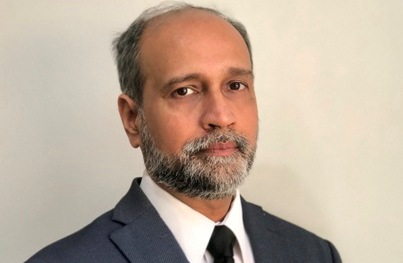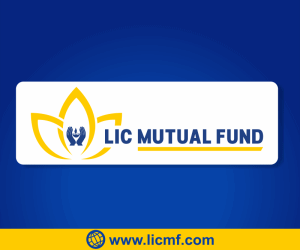It is logical to expect that risk taking in this period can be rewarding
BFSI Industry Interview

Tushar has over 20 years of experience in various roles through his career. He is an MBA in Investment Finance, having graduated from the University of Hartford, Connecticut, USA in 1992. Prior to joining HSBC Global Asset Management, India in June 2009, Tushar has also worked in international positions in the United States for a couple of years before returning to India. In India he has worked with HDFC Asset Management and more recently with AIG Global Asset Management in senior asset management roles.
With large parts of world under total or partial lockdown to prevent the spread of Coronavirus, the economic cost of the pandemic is likely to be huge with the IMF predicting a global recession. What are your views on the short term and long term global economic impact of Coronavirus?
Tushar Pradhan: Clearly the world is going through an unprecedented crisis. While we have seen many market events in the past, the scale and the enormity of the current situation is beyond the scope of most of them. Rarely has the world seen such a crisis. Let me also say that most market crashes in the past have been economic in nature precipitated by some issue in the financial system. However this time the problem has emanated in the human sphere, that of an outbreak of a novel virus which threatens to cause much fatality. Whether the impact on the world economy is short term or long term will clearly decide upon how soon we solve this problem, that of the outbreak.
The spread of Coronavirus is limited in India so far compared to many other markets and the Central / State Governments are taking pro-active steps to contain the spread of the contagion. Data coming from China indicate severe impact on their economic / industrial activity since the outbreak of the disease. What is your assessment of the impact of the Coronavirus on India’s real economy based on whatever information we have now?
Tushar Pradhan: As of now we are in the early stages of the outbreak in India and very little can be extrapolated from here. However there are encouraging signs that tell us that the spread, at least in the numbers so far is lower than seen in some other countries. If the outbreak is limited, and if the policy response is well coordinated we can have some optimism to see a reversal in the second half of the year. However much is an unknown as of now and will depend on data as we go in to the next month. Enabling policy measures are in place and we should see the economy respond, however much remains to be seen if the same translates in to business confidence and eventually into consumption.
The PM announced a 3 weeks country-wide lockdown from 25th March. Most states had already gone into lockdown a day earlier. What will be short term (next few quarters and FY 2021) impact of Coronavirus on the Indian economy? What will be the longer term impact over the next 3 years or so?
Tushar Pradhan: India has been one of the earliest adaptors of a lockdown since the observation of the first case. However the success of the lockdown and discipline thereof will determine the overall reduction in the spread.
The Coronavirus pandemic has sent markets round the world in a free fall, with the Nifty falling nearly 25% in the last 1 month. What is your outlook on the Indian equity markets in the short and long term?
Tushar Pradhan: We should remain extremely volatile in the short term, however if we are willing ot look beyond the current scenario it is logical to expect that risk taking in this period can be rewarding. However this is to be decided solely upon the ability of the investor to weather the volatility and to not need capital for a considerable amount of time. In other words, this is not a very easy road ahead for risk takers.
The RBI in its recent MPC meeting cut repo rate by 75 bps and also announced some liquidity measures. What is your outlook on the Indian debt markets?
Tushar Pradhan: The enabling policy measures have led to a sharp fall in yields and given bonds a huge rally. However the extreme risk aversion has also led to corporate spread moving up. This has led to a two tier market where risk continues to be mispriced. I expect volatility to continue to be a feature till some semblance of certainty creeps in. While there is no debate on the intent of the authorities to tackle the situation, the unprecedented nature of the current problems leads us to be cautious on making any predictions on the likely outcomes at this time.
There is a lot of nervousness among fixed income investors and reports of large scale redemptions from debt funds in March. What is your advice to existing debt fund investors and other investors who want to invest in fixed income?
Tushar Pradhan: Individual investors have to weigh their risk and reward situation to decide on asset allocation. Quarter end redemption is always a feature in shorter term funds in the month of March and we have seen the normal situation play out. We have also seen inflows thereafter into funds. However the uncertain nature of the situation may make investors risk averse and we feel that quality will now be preferred over yield to a certain extent.
What are your views on risks to FY 21 fiscal deficit target and bond yields creeping up due to Coronavirus? How should investors plan their fixed income investments for short to medium term (2 – 3 years) and long term (more than 3 years) in the current environment?
Tushar Pradhan: There seems to be a general consensus that given the present nature of circumstances the government may prefer to sacrifice current year fiscal targets. However it is also important to note that with the fall of oil prices and a possible current account surplus for India, some counter balancing will also happen. I do not think that investors should change their investment allocation to fixed income based purely on the current situation. Yields move in a concerted manner and the need for allocating into fixed income instruments will remain no matter what the situation is. However investors may prefer to reduce credit risk in their portfolios as certain issuers could face some difficulty in the near term, especially in industries that are more vulnerable.
What is your general guidance to investors on how to manage asset allocations in the current situation? Should investors use the correction in stocks to increase their exposure to equity?
Tushar Pradhan: Individual risk preference should drive asset allocation. I would recommend that investors do not jump in to risk assets thinking this is a great opportunity as there is yet a lot of uncertainty out there even if valuations on a historical perspective are attractive, neither is this the time to totally eschew risk. It ultimately will depend on the dynamics of each investors and the horizon they’re prepared to invest for.
Mutual Fund Investments are subject to market risk, read all scheme related documents carefully.
Recent Interviews
-
Partner Connect by Advisorkhoj with Mr Amit Kalra Glorious Path Pvt Ltd New Delhi
Dec 5, 2025
-
Partner Connect by Advisorkhoj with Mr Alok Dubey PrimeWealth Pune
Dec 1, 2025
-
In Conversation by Advisorkhoj with Ms Aparna Shanker Chief Investment Officer Equity The Wealth Company Mutual Fund
Nov 28, 2025
-
In Conversation by Advisorkhoj with Mr Sanjay Bembalkar Head Equity Union MF
Nov 28, 2025
-
In Conversation by Advisorkhoj with Mr Arjun Khanna Equity Fund Manager Kotak Mutual Fund
Nov 17, 2025
Fund News
-
DSP Mutual Fund launches DSP Nifty Next 50 ETF
Dec 19, 2025 by Advisorkhoj Team
-
DSP Mutual Fund launches DSP Nifty 500 Index Fund
Dec 19, 2025 by Advisorkhoj Team
-
Kotak Mahindra Mutual Fund launches Kotak Nifty Next 50 ETF
Dec 18, 2025 by Advisorkhoj Team
-
The Wealth Company Mutual Fund launches The Wealth Company Gold ETF
Dec 16, 2025 by Advisorkhoj Team
-
Axis Mutual Fund launches Axis Gold and Silver Passive FOF
Dec 10, 2025 by Advisorkhoj Team





